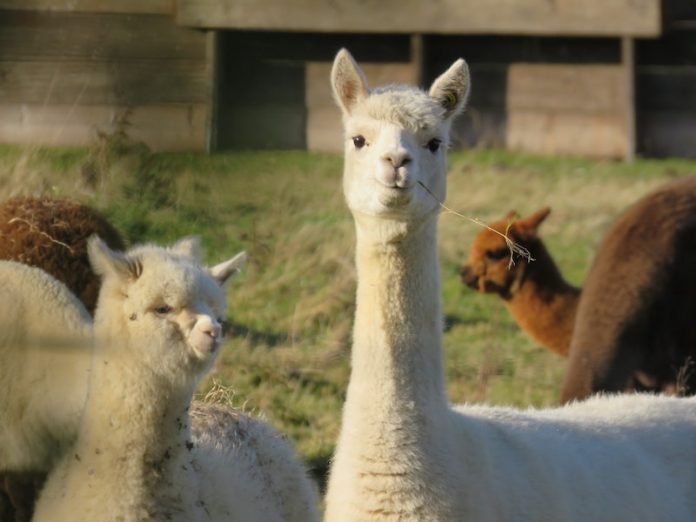
In a new study, researchers found that antibodies from llamas could help fight against COVID-19.
They linked two copies of a special kind of antibody produced by llamas to create a new antibody that binds tightly to a key protein on the coronavirus that causes COVID-19.
This protein, called the spike protein, allows the virus to break into host cells. Initial tests indicate that the antibody blocks viruses that display this spike protein from infecting cells in culture.
This is one of the first antibodies known to neutralize SARS-CoV-2. The findings show a potential way to develop a coronavirus treatment involving llamas.
The research was conducted by a team from The University of Texas at Austin and elsewhere.
According to the team, when llamas’ immune systems detect foreign invaders such as bacteria and viruses, these animals (and other camelids such as alpacas) produce two types of antibodies: one that is similar to human antibodies and another that’s only about a quarter of the size.
These smaller ones, called single-domain antibodies or nanobodies, can be nebulized and used in an inhaler.
That makes them potentially really interesting as a drug for a respiratory pathogen because you’re delivering it right to the site of infection.
Winter, the llama, is 4 years old and still living on a farm in the Belgian countryside along with approximately 130 other llamas and alpacas.
Her part in the experiment happened in 2016 when she was about 9 months old and the researchers were studying two earlier coronaviruses: SARS-CoV-1 and MERS-CoV.
In a process similar to humans getting shots to immunize them against a virus, she was injected with stabilized spike proteins from those viruses over the course of about six weeks.
Next, researchers collected a blood sample and isolated antibodies that bound to each version of the spike protein. One showed real promise in stopping a virus that displays spike proteins from SARS-CoV-1 from infecting cells in culture.
The team engineered the new antibody that shows promise for treating the current SARS-CoV-2 by linking two copies of the llama antibody that worked against the earlier SARS virus.
They demonstrated that the new antibody neutralizes viruses displaying spike proteins from SARS-CoV-2 in cell cultures.
This is the first known antibody that neutralizes both SARS-CoV-1 and SARS-CoV-2.
The team is now preparing to conduct preclinical studies in animals such as hamsters or nonhuman primates, with the hopes of the next testing in humans.
The goal is to develop a treatment that would help people soon after infection with the virus.
This would be especially helpful for vulnerable groups such as elderly people, who mount a modest response to vaccines, which means that their protection may be incomplete.
Health care workers and other people at increased risk of exposure to the virus can also benefit from immediate protection.
The lead author of the study is Jason McLellan, an associate professor of molecular biosciences at UT Austin.
The study is published in Cell.
Copyright © 2020 Knowridge Science Report. All rights reserved.



